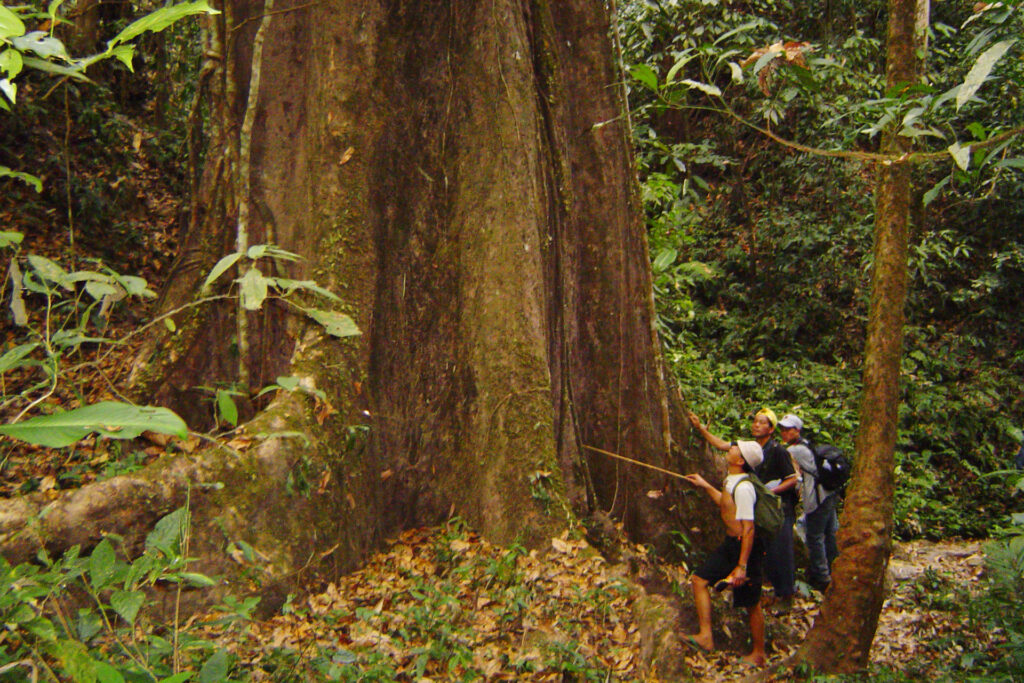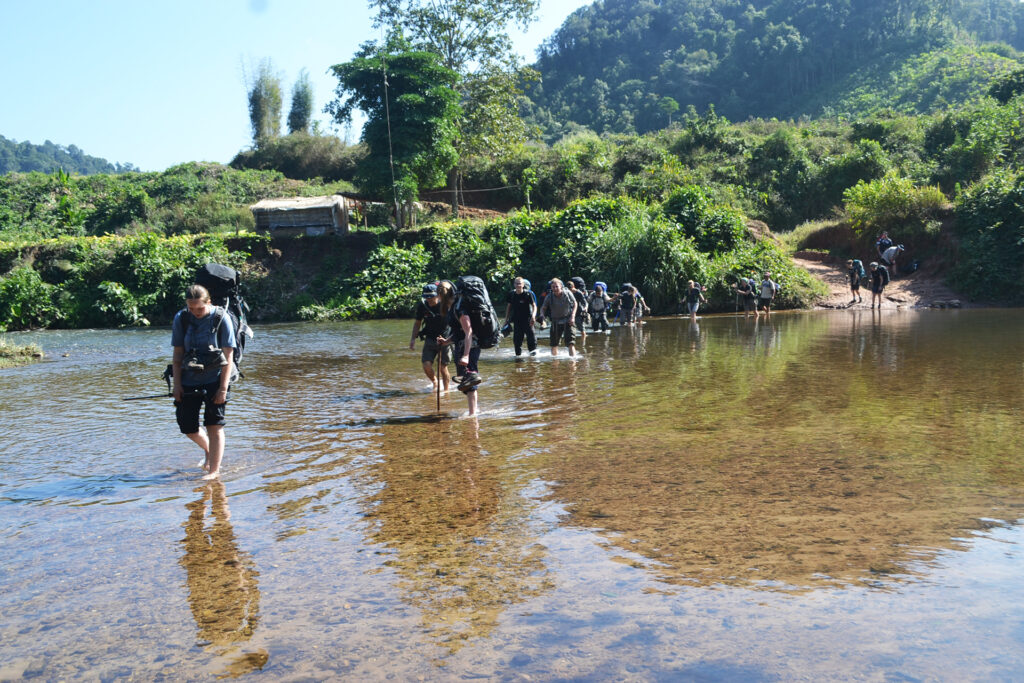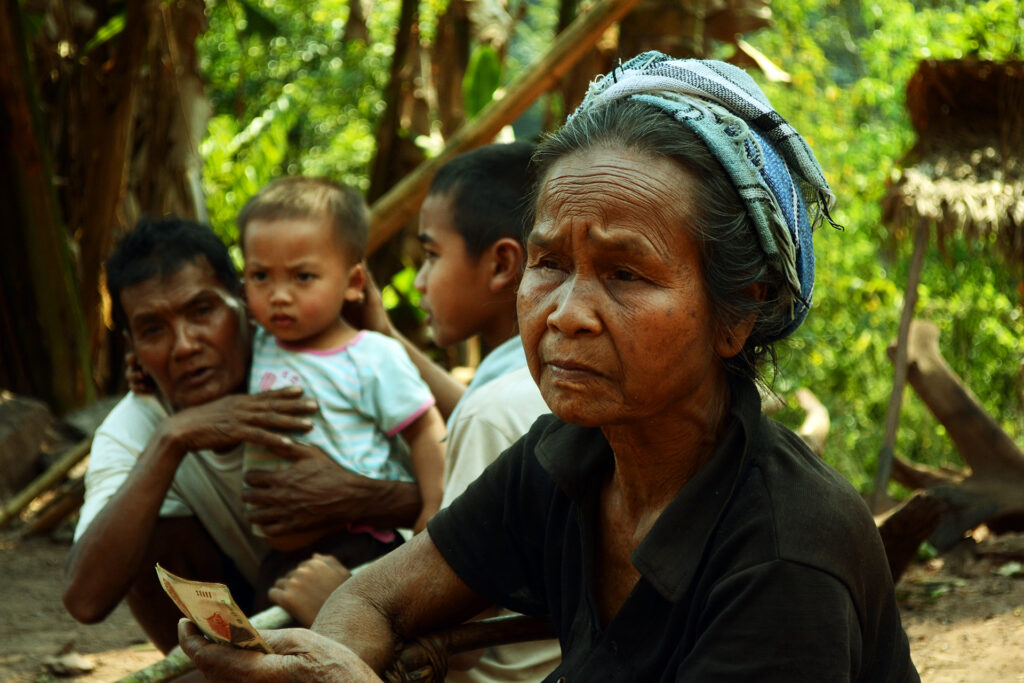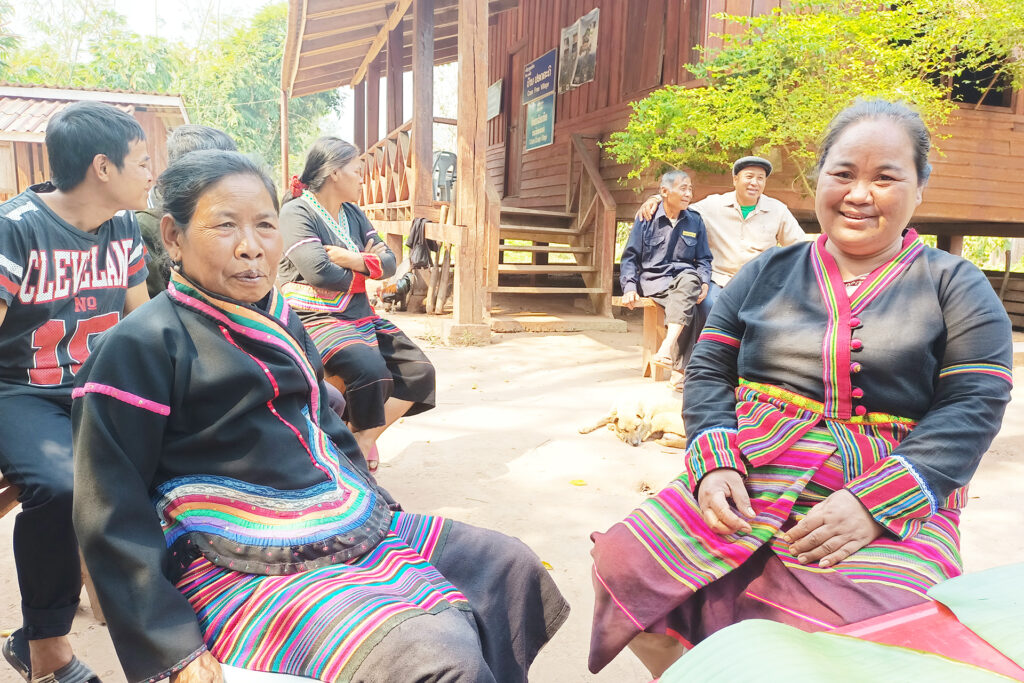To preserve the natural and cultural heritage to be sustainable:
In Luang Namtha province, there is a Nam Ha National Protected Area (NPA) spanning 222,400 hectares, which remains rich in biodiversity and wildlife. The area is home to numerous ethnic groups. However, there is a current shift happening as the traditional way of life, centered around nature-based activities like cultivation and hunting for food, is gradually changing. This shift has led to a decline in the culture and customs of the ethnic groups, influenced by other cultures.
Therefore, Eco-tourism, particularly hiking, can play a crucial role in encouraging people to conserve the natural and cultural heritage. By engaging in eco-tourism activities, the local communities can gain a renewed appreciation for their environment and culture. This, in turn, can contribute to the preservation of their traditions and customs, fostering a sustainable and balanced relationship with the land and wildlife.
To create awareness for local people to conserve the environment, natural and cultural resources:
Since these are tourism resources, it becomes essential for local people to conserve the natural resources, including maintaining a clean and ecologically balanced environment in their villages to ensure sustainability. Simultaneously, they should focus on studying and preserving the unique cultural heritage of their ethnic groups, enabling tourists to engage in an impressive and authentic experience and witness the cultural values of the tribes.
By actively participating in the conservation of natural resources, the local communities contribute to the long-term viability of their tourism offerings. They play a vital role in keeping their surroundings clean, preserving the ecological balance, and ensuring that the attractions remain attractive and enjoyable for visitors. This responsible approach benefits not only the tourism sector but also the overall well-being of the community.
Moreover, as the local people delve deeper into the study and research of their ethnic group’s cultural heritage, they enhance their ability to share these unique aspects with tourists. This enriching cultural exchange offers travelers a more meaningful experience and fosters a greater appreciation for the local traditions, customs, and values. Through this engagement, the tourists not only gain insights into the fascinating history and practices of the tribes but also become more aware of the importance of cultural preservation and respect.
To create opportunities for ethnic groups to have jobs, generate sufficient income and get out of poverty:
Most of the ethnic groups living in Nam Ha NPA are still experiencing poverty, and their main occupations revolve around farming and collecting non-timber forest products. However, eco-tourism has emerged as a beneficial management system, especially with support from the public and tourism sectors. This has led to the creation of jobs and increased income opportunities for the local communities.
Through eco-tourism, the locals actively engage in various tourism-related activities, such as serving as local guides, providing local food services, offering village homestays, showcasing cultural performances, crafting souvenirs from natural materials, and providing other related services. These opportunities empower the ethnic groups economically and provide a sustainable source of income, significantly improving their standard of living and helping to reduce poverty.
To build strength and equality between men and women of ethnic groups:
The cultural practices of the ethnic groups, particularly the gender roles where men have traditionally held the dominant position in society and interactions with outsiders, have been deeply ingrained and passed down through generations. This has resulted in men typically being prioritized, even during activities as basic as eating and drinking, while women have often been marginalized and assigned limited roles within the family and community.
Recognizing the significance of addressing these gender disparities and promoting inclusivity, the government has taken substantial measures to empower women in tribal villages to actively participate in tourism activities. This includes involving women in the process of defining tourism regulations within the village and establishing tourism service groups. By doing so, the government emphasizes the importance of women entering the tourism sector and taking on managerial roles alongside men.
By granting women opportunities to engage in tourism, they can showcase their unique skills and perspectives, ultimately contributing to a more diverse and enriching tourism experience. Their involvement fosters an atmosphere of equality and inclusiveness, which can positively impact the overall tourism industry and promote the preservation of cultural heritage.




